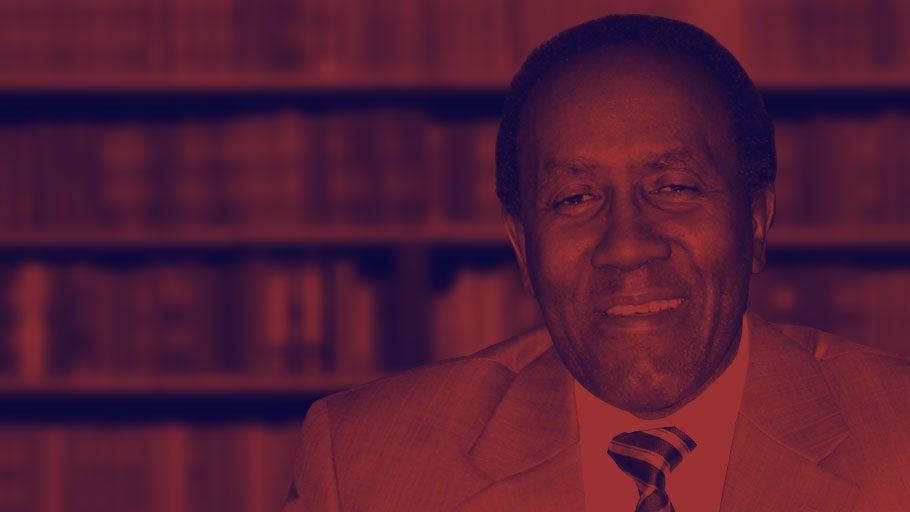This Friday, December 12, 2014, the Jamaica National Movement and the Jamaica Progressive League will hold a panel discussion on the legacy of the former Jamaican Prime Minister, Michael Manley. The charismatic Prime Minister came to power in 1972 and won re-election in 1976 and lost in the 1980 election. His political career was resuscitated when the People’s National Party defeated the Jamaica Labour Party in 1989. In failing health, Michael Manley stepped down from the Prime Ministership in 1991 and was succeeded by P.J. Patterson.
Michael Manley was a prolific writer and during the height of his political career found time to write The Politics of Change, A Voice at the Workplace, The Struggle in the Periphery, A Search for Solutions and Up the Down Escalator. He also wrote a book on The History of West Indies Cricket.
Michael Manley assumed the leadership of the People’s National Party at a time when the Jamaican society was becoming increasingly fractured. The international trading relationships were developing disadvantageously to the detriment of Third World countries. The formation of the Organization of Petroleum Exporting Countries (OPEC) precipitated an increase in the price of oil on the world market which further imperiled the Jamaican economy.
The Jamaican economy had experienced a sizeable growth spurt in the 1950s and 1960s with the expansion of bauxite production and tourism. The growth spurt began to slow in the late 1960s. Exacerbating the situation was that with the granting of independence in 1962, the cutting off of the migration to the United Kingdom created a bottleneck of surplus labour particularly in urban areas of Kingston and St. Andrew. The rude boy and the ratchet knife emerged as a serious challenge to the social order in Jamaica.
It is that gathering storm that Michael Manley was forced to respond. The PNP opted to recommit the Party to democratic socialism. From the inception of the Party, there had been the influence of Fabian Socialism. Faced with a fractured society, Manley articulated a brand of democratic socialism that was initially comforting to many but frightening to a few. Running on the platform of democratic socialism, the PNP won the election in 1976.
The ideological debate and the intra-class tribalism led to capital flight and by January 1977, one month after the 1976 election, the economy was bereft of foreign reserves. Thus Michael Manley had to seek an agreement with the International Monetary Fund (IMF). The IMF yesterday was oblivious to the plight of poor people, and conditions for the loan agreement meant all the social programs had to be dismantled.
Manley was fond of saying that under democratic socialism, a capitalist is a guest in the house of the people. Under capitalism, the people are a guest in the house of the capitalist. There is a certain peculiarity to class dialectics in Jamaican society. The working class movement was divided from the genesis of universal suffrage elections. The Alexander Bustamante’s JLP had the BITU and Norman Manley had the TUC-NWU. But the erudition of Norman Manley ensured that the intelligentsia and middle class gravitated to the PNP. By 1980, middle class allegiance had shifted to the JLP. The wealthy identified with the JLP. Nonetheless, since 1989, the PNP has been the dominant Party in Jamaica.
One of the burning questions is to what extent was Michael Manley a transformative leader? There is no question that he was an apostle for social justice. He sought to find ways to include the marginalized into the legitimate economy. One of his lasting accomplishments is the transformation of the educational system in Jamaica. In the 1950s and even in the 1960s, only a privileged few got the opportunity to attend high school. These traditional high schools were educationally exceptional. Graduates from Immaculate Conception, St. Andrew, Jamaica College, Wolmers, Kingston College, St. Georges, etc., could compete with the elite in the rest of the world.
The expansion of the educational system allowed most students graduating from elementary school were given a place in a secondary institution. Unfortunately, the educational outcomes of the newly converted high schools are not as distinguished as the traditional high schools. These poor educational outcomes have thwarted social and economic development.
Manley was an unflinching advocate of participation at the workplace. He thought this was an essential aspect of democracy. In some respects, the trade union movement constitutes a voice at the workplace. Unions bargain for wages, ensure safety at the workplace and struggle against arbitrary dismissals.
Economists like Thomas Piketty in his recent study Capitalism in the Twenty-First Century find that with globalization, we have returned to a new gelded age with workers exercising less power and capital absorbing more than the lion share of the profits. Although Michael Manley was a strong advocate of workers having a voice at the workplace, inequality remains a serious problem in contemporary Jamaica.
The United States government was hostile to Michael Manley as he was critical of the core countries gobbling up the wealth of countries in the periphery. He often used the example of sugar prices fluctuating on the world market and the price of tractors increasing, making the process of capital accumulation in places like Jamaica like climbing up a down escalator.
The world has become even more globalized than when Manley highlighted the asymmetrical relationships. Some micro-states like Singapore have managed to navigate through the shark-like waters of globalization. Brazil, Russia, India, China and South Africa (BRICS) have created new trading partnerships. Africa has some of the fastest growing economies in the world.
Nonetheless, Manley’s contribution at home and abroad makes him, if not a transformative leader, certainly he has been the apostle for social justice. But Jamaican society has a long road to travel before realizing Michael Manley’s vision for economic democratization.















